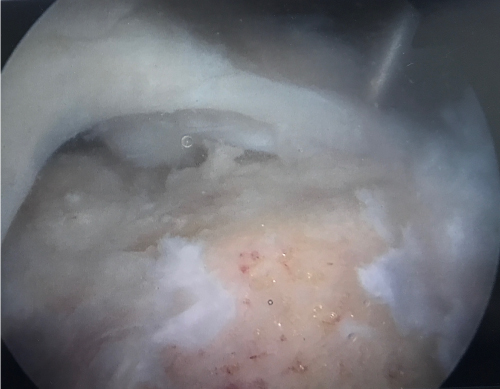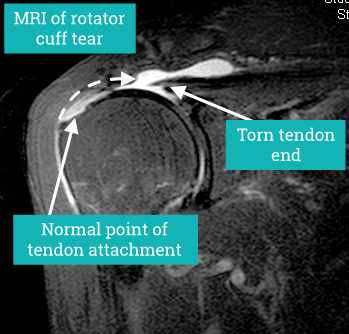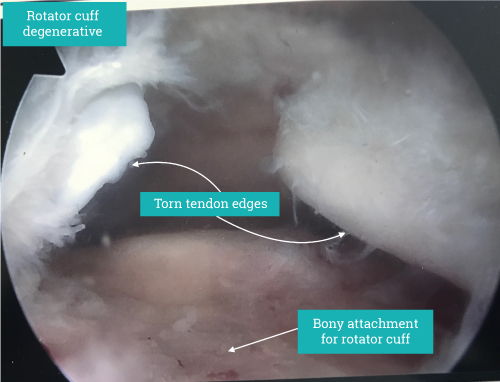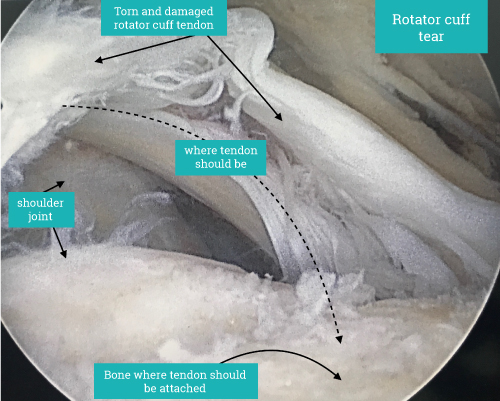
Rotator Cuff Tear
These muscles and their tendons wrap around the top of the humerus attaching before attaching to the bone. They run deep to the large outer muscle, the deltoid, and provide extra power, control and stability to the shoulder joint.
Rotator cuff tears come about either as part of the natural wear and tear process in the shoulder being seen very commonly in individuals aged over 70. These tears in older individuals may be pain free and only an incidental finding. Rotator cuff tears may also occur as a result of trauma. The most common traumatic cause is due to a fall on to the shoulder with the arm at the side.
Symptoms relate both to the tear itself and the associated inflammatory flare associated with the tear. At the time of an injury to the rotator cuff pain is typically felt in the outside of the shoulder. The next day the shoulder is often worse and it may be difficult to lift the arm. Associated inflammation may lead to increasing night pain and shoulder stiffness lasting several months.
As the inflammation resolves the rest/night pain improves. Some tears are entirely pain free and have normal function. Others in particular the larger tears will continue to cause pain and weakness when using the arm especially over shoulder height.
Treatment depends on the age and demand of the patient, size and reparability of the tendon and symptoms such as pain and stiffness. Small tears with a lot of pain can be treated with anti-inflammatory steroid injection and rest followed by physiotherapy. Large tears in particular those associated with significant weakness or tears that have failed to respond to non-surgical management over an appropriate length of time may be repaired typically by arthroscopic (keyhole) surgery or rarely by open methods. In older patients with massive and often longstanding rotator cuff tears the best treatment may be to replace the shoulder with a reverse geometry total shoulder replacement.
“Symptoms relate both to the tear itself and the associated inflammatory flare associated with the tear.”
Make an appointment
If you wish to make an appointment to discuss your needs further, please get in touch.

Hermitage Medical Clinic
Old Lucan Road
Dublin 20
Call for appointments: 01 6459562
Telephone: +353 1 645 9000
Fax: +353 1 645 9235
Email: info@johnlunn.ie




